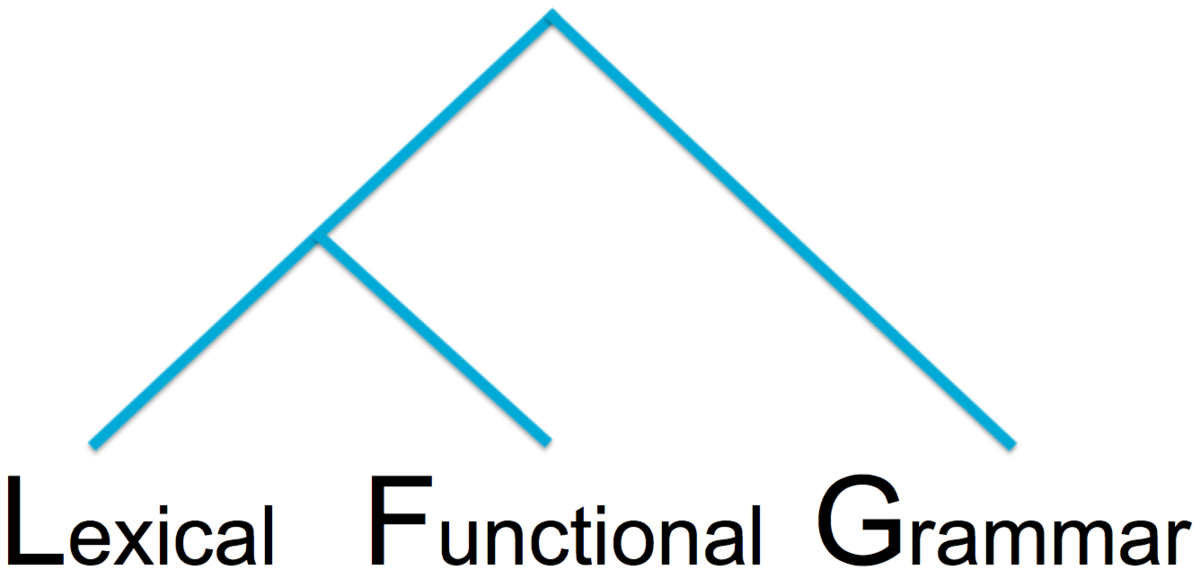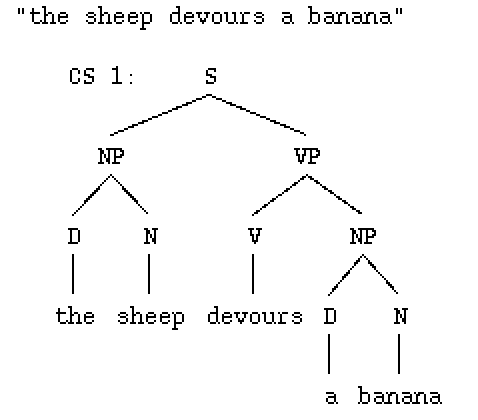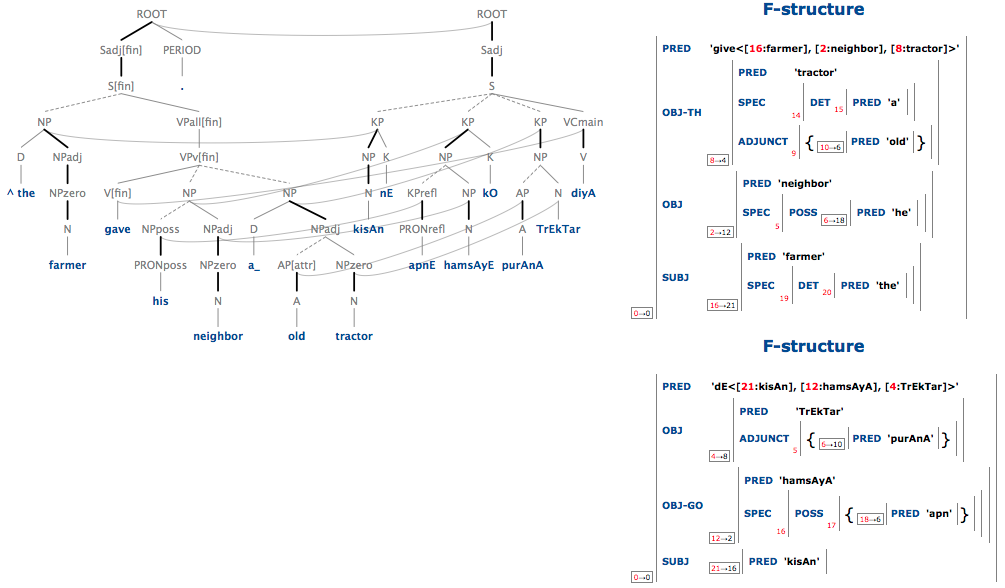Lexical-Functional Grammar (LFG) & XLE
On this page we offer you some insight into the world of Lexical-Functional Grammar, along with forwarding links for more information.
Lexical-Functional Grammar - short LFG - is a constraint-based theory of generative grammar. In contrast to other generative frameworks (e.g. GB or Minimalism), LFG is non-transformational. Important for us Computational Linguists is the fact that LFG-based grammars can be implemented.

The ILFGA is the official organization for those interested in Lexical-Functional Grammar and related topics. The site offers detailed information on the framework itself, as well as an extensive bibliography list and keeps you up-to-date with the annual LFG conferences. A compilation on important introductory books and articles is given here.
Xerox Linguistic Environment (XLE):

XLE is an important tool for implementing LFG-based grammars. It consists of cutting-edge algorithms for parsing and generating Lexical-Functional Grammars (LFGs) along with a rich graphical user interface for writing and debugging such grammars. It is the basis for the Parallel Grammar Project, which is developing industrial-strength grammars for English, French, German, Norwegian, Japanese, and Urdu. XLE is written in C and uses Tcl/Tk for the user interface. Click here for more information or if you are interested in working with XLE. If you want to try and parse some sentences, the INESS page offers a web-tool for parsing LFG Grammars using XLE.

This is a parallel treebank currently involving twelve languages from six language families. The treebank is based on deep LFG (Lexical-Functional Grammar) grammars that were developed within the framework of the ParGram (Parallel Grammar) effort. The grammars produce output that is maximally parallelized across languages and language families. This output forms the basis of a parallel treebank covering a diverse set of phenomena. ParGramBank can be accessed and downloaded for free via the INESS treebanking environment.
